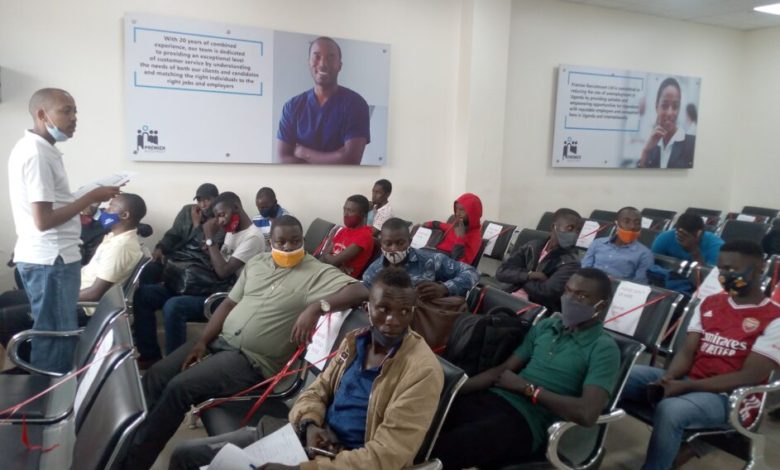The silent collapse of NGOs and its toll on the youth
According to the NGO Bureau, the number of registered NGOs has fallen sharply from 14,000 in 2019 to just 5,021 by August 2023.

As the number of registered NGOs in Uganda plummets, thousands of young professionals find themselves without work, signaling a looming employment crisis.
In the heart of Kampala, Esther Namubiru scrolls through job listings, her eyes scanning for opportunities in an industry she once thrived in.
Just three years ago, she was a project coordinator at a prominent non-governmental organization (NGO), leading community health initiatives in rural areas. Today, she’s one of the many young professionals left stranded as the NGO sector in Uganda faces a dramatic decline.
According to the NGO Bureau, the number of registered NGOs has fallen sharply from 14,000 in 2019 to just 5,021 by August 2023. This staggering drop has sent shockwaves across the country’s job market, hitting hard at a time when Uganda’s youth unemployment remains one of the highest in East Africa.
A Vital Source of Employment Vanishes For years, NGOs have been a lifeline for many young graduates in Uganda. With limited opportunities in the private sector, many found solace in NGO work, where they could apply their skills in social work, health services, education, and community development.
“The NGO sector was like a safety net for us,” says Esther. “It wasn’t just about the job; it was about making a difference in people’s lives. Now, that safety net is gone.”
The dramatic drop in registered NGOs has led to a sharp increase in job losses. With fewer organizations operating, many employees have been laid off, leaving thousands scrambling for new opportunities. Data from the Ministry of Gender, Labour and Social Development indicates that nearly 50,000 jobs have been lost in the sector since 2019.
Behind the Numbers: What Caused the Decline?
The steep decline in NGO registrations has raised questions about what’s driving this trend. The NGO Bureau attributes the drop to stringent new regulations and compliance requirements introduced in recent years. According to the Bureau, many organizations failed to meet the new standards, leading to their deregistration.
“The aim was to streamline the sector and ensure accountability,” an official at the NGO Bureau who preferred anonymity. “However, the unintended consequence has been a significant reduction in the number of operational NGOs.”
For many in the sector, the new regulations have been overwhelming. Organizations now face rigorous vetting processes, stricter financial reporting standards, and regular audits. For smaller NGOs, which often operate on limited budgets, meeting these requirements has proven to be an insurmountable challenge.
The collapse of NGO jobs doesn’t just affect individual employees; it has broader implications for the entire economy. NGOs have historically been major contributors to Uganda’s economic development, channeling millions of dollars in foreign aid into local communities.
With fewer NGOs in operation, these financial inflows have dwindled, leading to reduced funding for critical projects in education, healthcare, and agriculture.
“NGOs play a critical role in supplementing government efforts, especially in underserved areas,” notes Dr. Grace Mukasa, an economist. “When they close down, it creates a vacuum that the government alone cannot fill.”
The effects are already being felt on the ground. In Northern Uganda, where NGOs have been instrumental in providing healthcare services, clinics that once offered free medical check-ups are now struggling to stay open. Similarly, in rural districts, educational programs for girls and agricultural training initiatives have been scaled back or shut down entirely due to lack of funding.
A Generation in Limbo For Uganda’s youth, the NGO sector was more than just a job market; it was a platform for learning, growth, and contributing to community development. Many young professionals like Esther are now left questioning their future in a country where stable job opportunities are scarce.
“I had so many plans,” she says, her voice tinged with frustration. “Now, I’m back to square one, applying for any job I can find, even if it’s not in my field.”
Esther’s story is echoed by many others across the country. With fewer NGOs hiring, a generation of skilled youth is left in limbo, uncertain about their career prospects. For those who invested years in specialized fields like public health, community mobilization, and education, the job market has become an unforgiving place.
Looking Ahead: What Can Be Done?
As the dust settles, the question remains: how can Uganda’s youth adapt to this new reality? Some experts suggest that the government could play a role in cushioning the blow by creating alternative employment opportunities, especially in sectors like agriculture, technology, and manufacturing. Others call for a review of the stringent regulations that led to the NGO decline, arguing that a more balanced approach could help revive the sector.
“We need to find a middle ground,” says Dr. Mukasa. “Regulation is important, but so is ensuring that NGOs can continue to operate and provide much-needed services to our communities.”
For now, young professionals like Esther are left hoping for a turnaround. As she continues her job search, she remains hopeful that the sector that once thrived will rise again, bringing back the opportunities it once offered.
The sharp decline in the number of registered NGOs in Uganda has exposed a hidden crisis—one that has left thousands of young professionals unemployed and uncertain about their future. As the country grapples with this reality, the question remains: how can Uganda rebuild a sector that has been a cornerstone of its social and economic development for decades?






